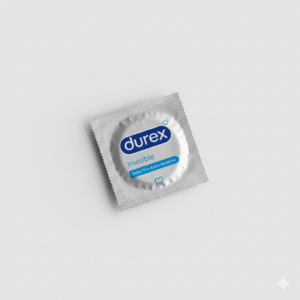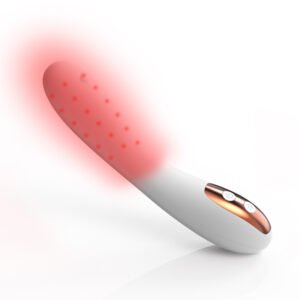Why Is Body-Safe Material Important for Sex Toys?
June 4, 2025 by
ellenyi@adultstoysgd.com
Product Knowledge🔥 Problem – Agitation – Solution Breakdown
Problem:
You just bought a cheap “realistic dildo” online, but it smells like chemicals and leaves a sticky residue.
Agitation:
Unknown materials in sex toys can cause infections, allergic reactions, and even long-term health risks.
Solution:
Understanding body-safe materials ensures pleasure without compromising your health or safety.
✅ Featured Snippet Answer
Body-safe materials like medical-grade silicone, stainless steel, and tempered glass are non-porous, toxin-free, and easy to clean.
Unsafe materials such as TPE, PVC, and jelly rubber can harbor bacteria, trigger infections, and may contain carcinogens.
👉 Always verify material claims and look for certifications (FDA, CE, RoHS) when purchasing vibrators, male masturbators, or any intimate product.
Keep reading to learn how to spot dangerous materials and choose toys that protect your health.
1. 🧪 What Makes a Sex Toy Material “Body-Safe”?
-
Non-porous surface
Prevents bacterial growth (e.g., silicone vs. porous TPE). -
Phthalate-free
Avoids endocrine-disrupting chemicals found in PVC. -
Thermally stable
Won’t degrade or leach toxins during use or cleaning.
💡 Industry Insight:
Many Amazon/AliExpress sellers falsely label TPE as “body-safe silicone.”
🔍 Test it: Real silicone sinks in water. TPE floats.
2. 🧷 Material Breakdown: Safety & Features
| Material | Safety Level | Pros & Cons | Best For |
|---|---|---|---|
| Medical Silicone | ⭐⭐⭐⭐⭐ | Non-porous, hypoallergenic, boilable | Realistic dildos, vibrating toys |
| Stainless Steel | ⭐⭐⭐⭐⭐ | Non-porous, weighty, compatible with all lubricants | Butt plugs, kegel balls |
| TPE | ⭐⭐ | Soft and flexible, but porous; prone to mold growth | Only external male masturbators (with condoms) |
| PVC / Jelly | ⚠️ Avoid | Contains phthalates; degrades and melts over time | None – outdated and considered hazardous |
💬 User Concern Highlight:
“My TPE toy caused a rash after months of use. Now I only buy platinum silicone.”Medical grade silicone G Spot vibrator, with FDA approved
3. 🔍 How to Test Your Sex Toy’s Safety (DIY Checks)
-
👃 Smell Test
Chemical or “pool toy” odor? Toss it. -
🖐️ Residue Test
Oily film or powdery coating? Toxic plasticizers likely present. -
💧 Float Test
Place in water. Silicone sinks; TPE/PVC floats. -
🔥 Flame Test (for silicone only)
Real silicone leaves white ash; fake silicone melts like plastic.
💡 Pro Tip:
Use condoms on TPE toys to reduce infection risk.
4. ❓ Top 3 Consumer Questions Answered
Q1: Can I boil TPE to sterilize it?
A: No. Boiling TPE speeds up degradation. Use mild soap + 70% isopropyl alcohol (external use only).
Q2: Why does my “silicone” toy smell weird?
A: Likely a silicone-TPE blend. Pure silicone is odorless.
Q3: Are vibrating underwear materials safe?
A: Only if they are labeled “medical silicone.”
5. 💸 Why Cheap Sex Toys Are a False Economy
A $15 “silicone” dildo might seem like a bargain, but:
-
🔁 Replacement costs add up when TPE tears within months.
-
💊 Medical bills from UTIs or chemical burns outweigh the savings.
-
🌍 Environmental harm: PVC toys are not recyclable.
🏷️ Brands We Trust:
Lelo, We-Vibe, Fun Factory — or our custom line with factory-tested materials.Medical Grade – double layer Liquid Silicone Dildo , Supportting customized with function
🎯 Key Takeaway
Always choose certified body-safe materials (silicone, steel, glass) over cheap, toxic alternatives like TPE or PVC.
Your health is worth the investment.
Latest Articles

February 18, 2026
Why Do The Olympics Distribute Hundreds of Thousands of Condoms?
Is the Olympic Village just a global sporting event, or is it the world’s most exclusive party? Imagine 450,000 condoms.

February 17, 2026
Condom Breakage Nightmares: Why Do They Pop and How Can Premium Stock Save Your Brand Reputation?
Imagine this: Your customer is in the heat of the moment based on trust in the product you sold them.

February 16, 2026
Why is she "so dry"? The $600 Billion Missed Opportunity in Female Intimate Wellness?
Problem: It is the number one complaint in the bedroom, yet the most ignored category on your retail shelves. "Why

February 13, 2026
Is Having Sex During Your Period Actually Dangerous?
It’s that time of the month again. You’re feeling a mix of emotions, and maybe, just maybe, your libido is



